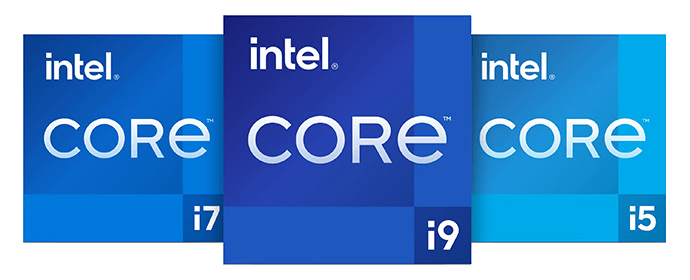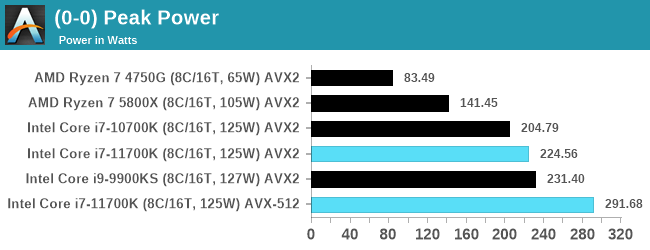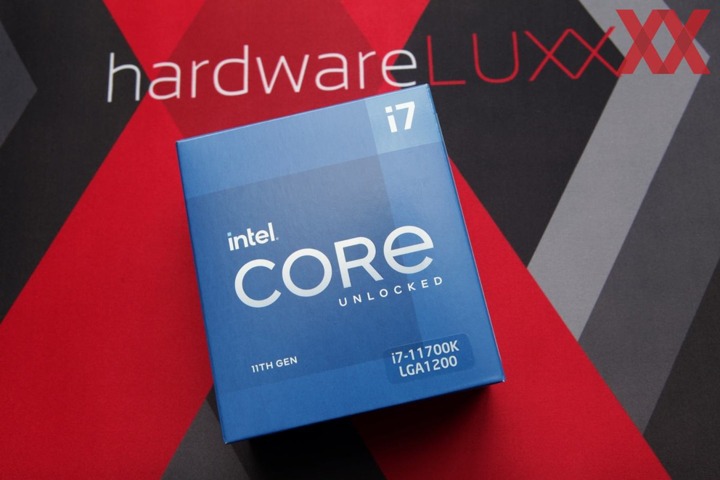One thing is for certain with the release of Rocket Lake on March 30th: competition will heat up again and we, the consumer, will profit!
With fan favorite AMD’s rapid rise to the top over the last few years, Intel has been pulling out all the stops to try and keep up. One of the measures it takes to remain relevant is the backporting of their ‘Sunny Cove’ architecture, meant for 10nm. And as seen in action with the mobile ‘Ice Lake’ processors, to 14nm.
To see the result of this, we will have to be patient for a bit longer. The new ‘Rocket Lake’ processors will be released on the 30th of March.
Or do we?

Early (p)reviews
Late last week, AnandTech published a review of the new Intel Core i7-11700K. They had acquired the processor before the official launch date from German retailer Mindfactory. How and why Mindfactory started selling the processors so early remains a mystery.
Unfortunately for Intel, the review published by AnandTech didn’t paint a rosy picture of the i7-11700K. Dramatically increased power consumption and no noticeable performance gain in gaming compared to its predecessor, the i7-10700K.

With performance being (a lot) worse than expected, there were quite a few questions regarding the product and the review. After all, why would Intel release a product that is generally inferior to its predecessor? Were they hoping no one would notice? Are they this desperate to keep their shareholders happy? Did they do this so they too could finally claim PCIe 4.0 support?
It seems like the answer to this question is none of the above. In fact, it turns out AnandTech weren’t the only outfit to be able to pick up the i7-11700K from Mindfactory. HardwareLuxx has posted a review (in German) of their own i7-11700K a few days ago and this one paints an entirely different picture of the product.

In the review, we can now see the i7-11700K go toe-to-toe with Intel’s previous generation top of the line processor; the i9-10900K. And we see it in some cases, even beat it. This is quite important, as the i9-10900K has 10 cores compared to the i7-11700K‘s 8 cores. This also confirms the significant IPC increase claimed by Intel isn’t a lie. The Cinebench R20 benchmark reflects this quite well.
Benchmark results

The i7-11700K obliterates the i9-10900K in a single threaded Cinebench workload with a score of 600 compared to 530. Since the maximum frequency of the i7-11700K is lower than the i9-10900K, the actual IPC increase might turn out to be very close to the claimed 19%.
As we can see from the benchmarking results, hardwareLUXX has also been busy testing a new BIOS version. Which has dramatically improved memory performance and latency for the processor. Latency can be seen dropping from 57.5ns to 49.1ns! In almost all cases the new BIOS update is beneficial, but the true impact can be seen in memory intensive applications such as Y-Cruncher:


Last but not least, the gaming results aren’t anything to scoff at either. Frames being pushed per second in the games tested are very close to both Intel’s current top of the line processor, the i9-10900K. As well as its competitor AMD’s competing processors.


Ok great, but performance still seems worse than AMD’s Zen 3! How will Rocket Lake ever be relevant?
It all comes down to what Intel’s strategy will be for these processors. AMD has had a tough launch at the end of 2020 with the Zen 3 based Ryzen 5000 series of processors. Supply constraints have been plaguing the semiconductor industry for quite some time now, and are still not resolved. The situation seems to have improved a bit (or perhaps demand has just dropped?) but the prices for the latest Ryzen processors are still quite high. On top of that, AMD raised the prices of Ryzen 5000 quite a bit compared to the Ryzen 3000 series.
| Intel i7-10700K | Intel i7-11700K | AMD Ryzen 7 3800X | AMD Ryzen 5 5600X | AMD Ryzen 7 5800X |
|---|---|---|---|---|
| 419 euro (319) | ? | 409 euro (309) | 309 euro (339) | 469 euro (449) |
If Intel maintains the same pricing at launch as they did for the 10700K, it seems like the processor might actually have decent value for your money, coming in 30 euros cheaper than the competing 5800X, whilst performing marginally worse.
On the other hand, pricing on current gen Comet Lake processors like the i7-10700K has seen steady price cuts over time. If Intel were to launch the new processors conforming to the current pricing structure, this would make the i7-11700K very hard to ignore.
One thing is for certain with the release of Rocket Lake on March 30th: competition will heat up again and we, the consumer, will profit!
